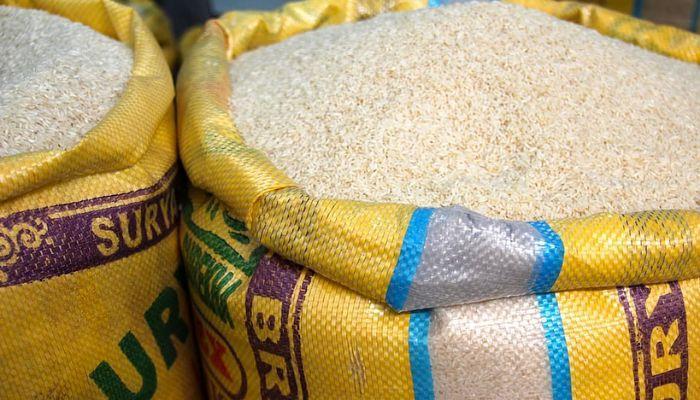In a troubling development, the cost of rice in Nigeria has soared to unprecedented levels, reaching a staggering N88,000 for a 50kg bag of foreign rice in major retail outlets.
This represents a substantial 22.2 per cent surge compared to earlier prices this month, which stood at N72,000.
Local rice hasn’t been spared from the price hike either, with a nearly equivalent increase of 21.8 per cent within a month, now priced at N67,000 per 50kg bag. These figures, disclosed by NATIONAL ECONOMY underscore a worrying trend of escalating food prices in the nation.
The surge in rice prices can be attributed to various factors, including the continuous depreciation of the naira, persistent bans on imported rice, and the resultant scarcity driving up demand for locally produced rice.
Mrs. Olanike, a rice dealer at Daleko market in Lagos, pointed out that the spike in local rice prices is closely tied to the fluctuations in foreign rice prices.
Moreover, the depreciation of the naira against other currencies has been alarming, with official and parallel markets witnessing over 45 per cent and 30 per cent depreciation respectively, year-to-date.
Recent inflation data from the National Bureau of Statistics (NBS) revealed a grim picture, with food inflation reaching a staggering 35.71 per cent in January 2024, the highest level recorded since August 2005.
This surge was primarily fueled by increases in the prices of essential food items like bread, cereals, potatoes, yams, oils, fats, fish, and meats.
Imported food items haven’t been spared either, with imported food inflation hitting 26.3 per cent, the highest rate since January 2012, largely due to foreign exchange volatility and low agricultural production.
The agricultural sector, crucial for ensuring food security, has been grappling with challenges ranging from insecurity and global supply chain disruptions to climate change-induced flooding. GDP data reflects a sluggish growth rate of just 1.13 per cent in 2023, compared to 1.88 per cent the previous year, highlighting the sector’s struggles.
Ibrahim Maigari, founder and CEO of RiceAfrika, outlined several factors contributing to the rising food prices, including unmet food demand exacerbated by various crises, increased transportation costs due to the removal of petrol subsidies, and soaring production expenses.
To mitigate the crisis, Maigari proposed a comprehensive strategy called the Farm Easy Operating System, emphasizing improved land preparation, access to high-yielding seeds, quality chemicals, timely delivery of fertilizers, adoption of best agronomic practices, mechanization, and improved market access.





